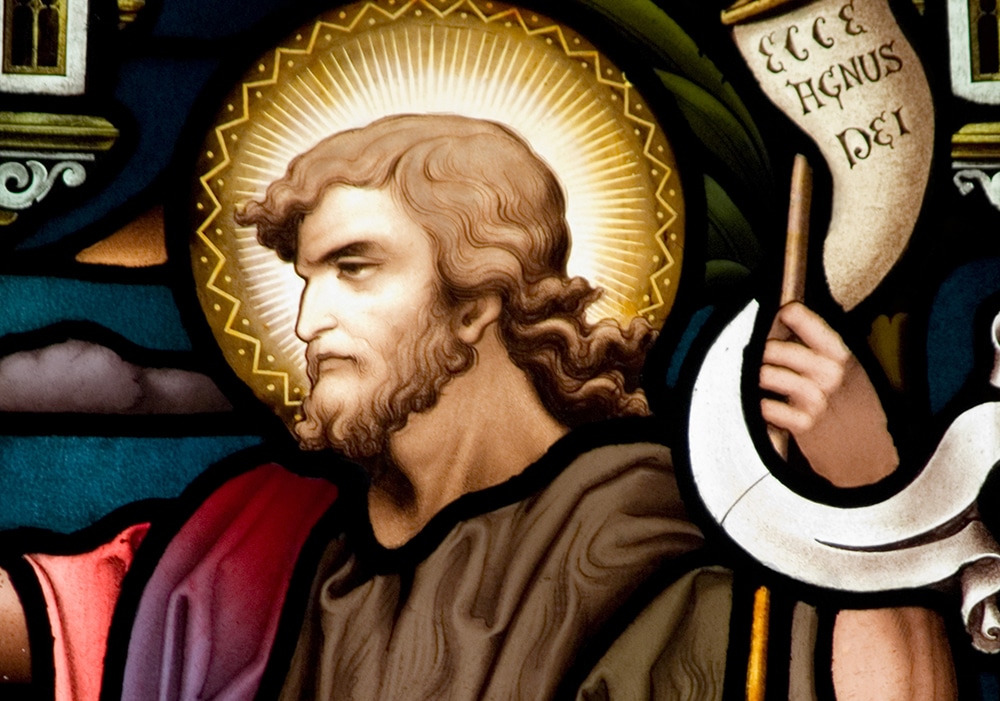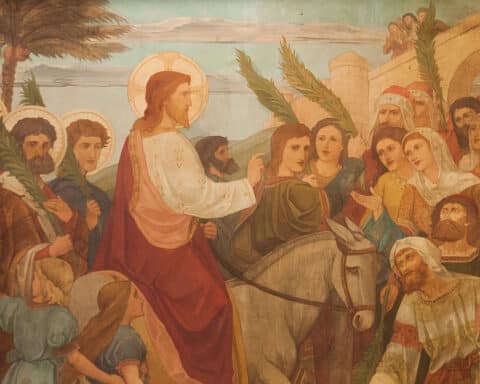
The Baptist is under examination by the priests and the Levites. They want to know who this prophet in the desert is. Who calls sinners to conversion?
Unlike his interlocutors, we know the meaning of what John proclaims. As we read last week, John has come to announce the coming of Jesus, the Messiah. He is the one who cries out in the desert of desolation, announcing the advent of the Word made flesh.
| December 13, 2020 – Third Sunday of Advent |
|---|
|
Is 61:1-2, 10-11
Lk 1:46-48, 49-50, 53-54
1 Thes 5:16-24
Jn 1:6-8, 19-28
|
And yet, if we are not attentive, we will miss another dimension of John’s confession of identity. He is the voice crying out in the desert. But he is also not the Christ, not the Messiah and not the Prophet.
John proclaims his identity, his vocation as the voice from the heavens by first proclaiming what he is not.
John’s “not-ness” is not an occasion of self-abnegation. He does not despise himself. But he knows that his vocation as prophet comes exclusively from Jesus Christ. His mission is to proclaim the Dayspring from on high, and he is not Jesus.
On this Gaudete Sunday, we Christians celebrating Advent might learn from the “not-ness” of John the Baptist. Over the last nine months, we have rediscovered the hard way what we are not.
We are not men and women who can escape the precarity of sickness and death.
We are not the lords of the world, capable of obliterating a virus through hopeful thoughts.
We are precarious, unsecure, unable to escape sickness and death.
And yet, by confessing our precarity, our incapacity to remain absolutely secure, we concurrently confess our identity as redeemable creatures.
We are creatures, dependent entirely on the goodness of the God who creates, sustains and redeems the world.
This is indeed a reason for us Christians to rejoice, even as we mark the season of Advent in COVID-tide.
The Church has given us the Blessed Virgin’s words to form us in a posture of creaturely praise. Mary’s Magnificat, functioning as the psalm of the day, is a confession of total dependence.
It is the power of God who has allowed the Word to take flesh in the womb of the Blessed Virgin. It is the kindly countenance of God who has looked with mercy on his unfaithful people. It is God’s name that is holy, beyond anything that we can proclaim.
Even in this time of sorrow, of a holiday season insufferably shaped by a death-dealing virus, we have reason to rejoice. We are not the lords of creation; God alone is.
And what marvels our heavenly Father has accomplished through the gift of the eternal Son for the salvation of the world. How can we not rejoice when we contemplate the pledge of the Spirit that infuses our hearts, raises them to praise and prepares us for a heavenly banquet by dressing us “like a bridegroom adorned with a diadem, like a bride bedecked with her jewels” (Is 61:10).
We rejoice, dear friends, not because everything is wonderful, because of a security that we have achieved through our own ingenuity. We rejoice because we are dependent creatures in need of a redemption we cannot accomplish.
Like John the Baptist, we are not.
Like Mary, the fruitful Virgin, we are not.
Like both, because we are not, we can become what God has intended for his faithful people.
Creatures made for praise, inviting to the wedding of heaven and earth.
Timothy P. O’Malley, Ph.D., is the director of education at the McGrath Institute for Church Life at the University of Notre Dame.





